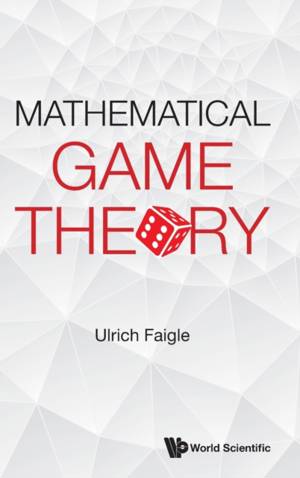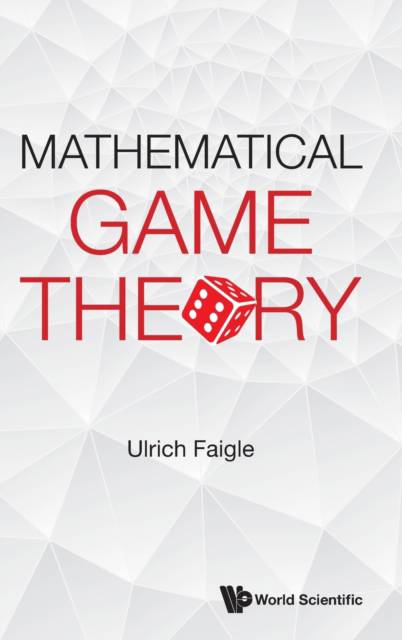
- Afhalen na 1 uur in een winkel met voorraad
- Gratis thuislevering in België vanaf € 30
- Ruim aanbod met 7 miljoen producten
- Afhalen na 1 uur in een winkel met voorraad
- Gratis thuislevering in België vanaf € 30
- Ruim aanbod met 7 miljoen producten
Zoeken
Omschrijving
What is a game? Classically, a game is perceived as something played by human beings. Its mathematical analysis is human-centered, explores the structures of particular games, economic or social environments and tries to model supposedly 'rational' human behavior in search of appropriate 'winning strategies'. This point of view places game theory into a very special scientific corner where mathematics, economics and psychology overlap and mingle.This book takes a novel approach to the subject. Its focus is on mathematical models that apply to game theory in particular but exhibit a universal character and thus extend the scope of game theory considerably.This textbook addresses anyone interested in a general game-theoretic view of the world. The reader should have mathematical knowledge at the level of a first course in real analysis and linear algebra. However, possibly more specialized aspects are further elaborated and pointers to relevant supplementary literature are given. Moreover, many examples invite the reader to participate 'actively' when going through the material. The scope of the book can be covered in one course on Mathematical Game Theory at advanced undergraduate or graduate level.
Specificaties
Betrokkenen
- Auteur(s):
- Uitgeverij:
Inhoud
- Aantal bladzijden:
- 240
- Taal:
- Engels
Eigenschappen
- Productcode (EAN):
- 9789811246692
- Verschijningsdatum:
- 21/03/2022
- Uitvoering:
- Hardcover
- Formaat:
- Genaaid
- Afmetingen:
- 152 mm x 229 mm
- Gewicht:
- 489 g

Alleen bij Standaard Boekhandel
+ 238 punten op je klantenkaart van Standaard Boekhandel
Beoordelingen
We publiceren alleen reviews die voldoen aan de voorwaarden voor reviews. Bekijk onze voorwaarden voor reviews.











